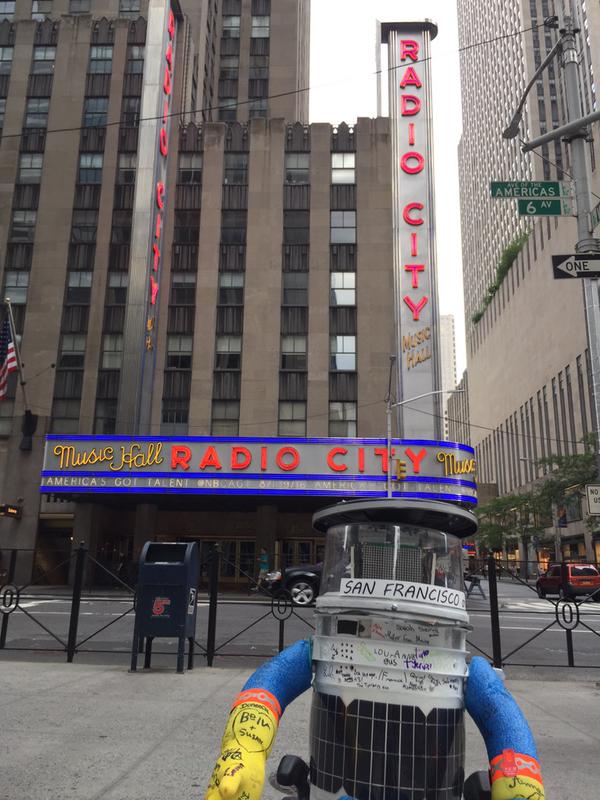HitchBOT, a robot that was created as a social media experiment and managed to hitchhike around Europe, Canada, Germany, and The Netherlands, only made it two weeks and 300 miles in America before he was found dead on the side of a road in Philadelphia. Unable to move itself, hitchBOT relied solely on the kindness of human strangers to get around. People who picked him up often passed him on or left him in notable areas where others would notice him.
“No one from the team will accompany Hitchbot,” his creators, David Harris Smith and Frauke Zeller said. “It will be like the Mars rover, only instead of exploring Mars, it is exploring human social life.”
The robot was designed to be a travel companion and could spit out random facts. “We want to see what people do with this kind of technology when we leave it up to them,” Zeller said. “It's an art project in the wild – it invites people to participate.”
HitchBOT had a good run, always accompanied with a smile on his face. The robot was equipped with a GPS, 3G, and video and audio for tracking purposes. He attended a wedding in Germany, trekked 3,600 miles across Canada, and had his portrait painted in The Netherlands.

His journey to the states began on July 17 in Marblehead, Ma. From there, he made it to Boston, where he saw a Red Sox game; next, he explored New York City, taking photos in front of Rockefeller Center. HitchBOT had a bucket list written, which included plans to indulge in some jazz music in New Orleans and take a selfie in front of the Hollywood sign, but his journey was cut short once he reached Philadelphia.
The robot’s body was found vandalized in “The City of Brotherly Love” –proving the motto doesn’t apply to robots; he had collapsed on the street among leaves and trash with his noodle arms dissembled and head nowhere in sight.
“Sometimes bad things happen to good robots,” a statement from the creators read. “We know that many of hitchBOT's fans will be disappointed, but we want them to be assured that this great experiment is not over.”
The creators are not looking to press charges or find the people who vandalized hitchBOT. Rather, they wish to remember the good times and encouraged fans to do the same.
All along we’ve been asking ourselves, ‘Can we trust robots?’ As demonstrated here, the real question is, ‘Can robots trust humans?’
Source: CNet
Advertisement
Learn more about Electronic Products Magazine





